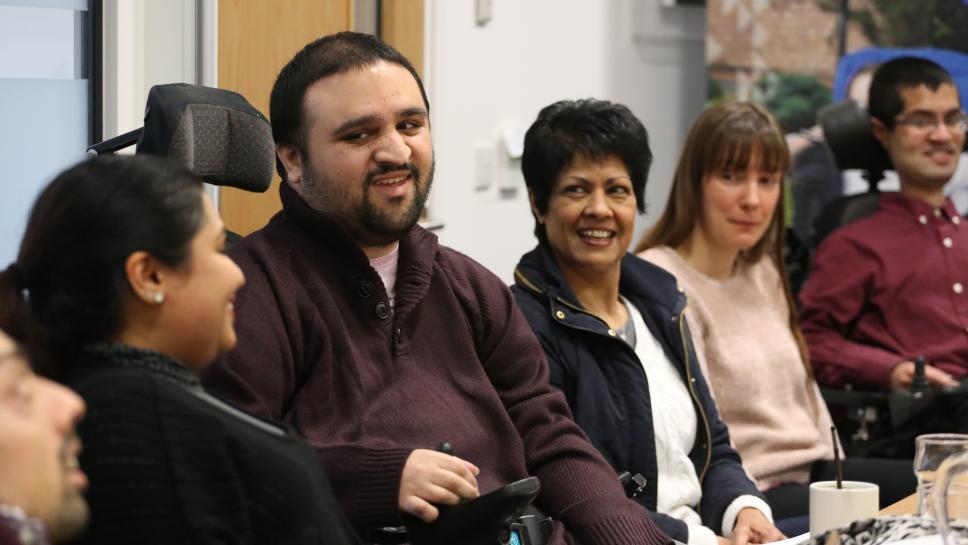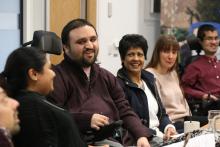
Muscular Dystrophy UK is calling on the government and employers to take action to remove the barriers that make it difficult for disabled people to find and stay in work.
Trailblazers – the charity’s 750-strong group that campaigns for change – spoke to young disabled people and employers through a series of workshops during its 18-month Employability Policy Project. The scheme, which was funded by the City Bridge Trust, set out to identify the changes needed to improve things in the future for disabled job-seekers.
In its ‘Ready and able’ report, published today, Trailblazers has made a series of recommendations, including:
- Making disability awareness training compulsory at work, with a national organisation having overall responsibility
- Expanding the Government’s Access to Work grant – which covers the cost of specialist equipment and support for disabled employees – to include paid internships and work experience
- Allowing applicants decide when to disclose their disability, and to include space on applications for people to explain their conditions and needs, should they wish to
Emma Vogelmann, Employability Officer at Muscular Dystrophy UK, said:
Trailblazers routinely experience difficulties finding and staying in work because of the attitudinal and physical barriers that stand in their way, whether it’s inaccessible buildings, no funding, or a lack of reasonable adjustments.
Our employability project puts young disabled people at the heart of the programme, and their experiences will drive it forward. We know there is a big disability employment gap, and employers and the government must take action to address it.
Job-seekers were given the option of remaining anonymous in a series of workshops, to allow in-depth discussions to take place. Many young disabled people said they were unsure about where to find work, when to disclose a disability and what their rights are.
Meanwhile, employers representing a range of sectors said they wanted their organisations to be more inclusive, but had many unanswered questions about disability. Muscular Dystrophy UK found that, much of the time, the problem isn’t an unwillingness to take on a disabled employee, but a lack of confidence in knowing how to provide adequate support.
Emma added:
It’s encouraging that employers recognise the part they have to play in making the workplace more inclusive. We still have a way to go, but by identifying the key obstacles and working together we can drive the change that is needed.
Andrew Robertson, 38, from Canterbury, has Type 2A limb girdle muscular dystrophy. Andrew, one of the project’s members, is managing director for R&B Star, a family business started by his grandfather that employs 65 staff. He said:
In my experience employers often want to be more inclusive but are worried about increasing costs and adaptations. Work experience is great as it can allow a disabled person to get their foot in the door to show their capabilities without commitment on either side.
Clive Gilbert, 32, from London, also shared his experiences for the project. Clive, who has cerebral palsy, took an organisation to an employment tribunal because it would not waive psychometric tests used to screen job candidates. He said:
My disability overshadows almost all other considerations when I apply for a new job. I tend to discount workplaces that are inaccessible by public transport because I find long commutes by cab wearying. My speech impairment can make it very difficult for me to make the right kind of impression at interview and is, I think, one of the main reasons employers have sometimes been put off working with me.
He added:
Concerns over not being understood and other disability-related barriers during the recruitment process are incredibly stressful. Employers need to be more aware of the various ways in which disability affects recruitment processes. They should also be encouraged to conduct accessibility audits of their premises and run disability awareness training for their staff.

